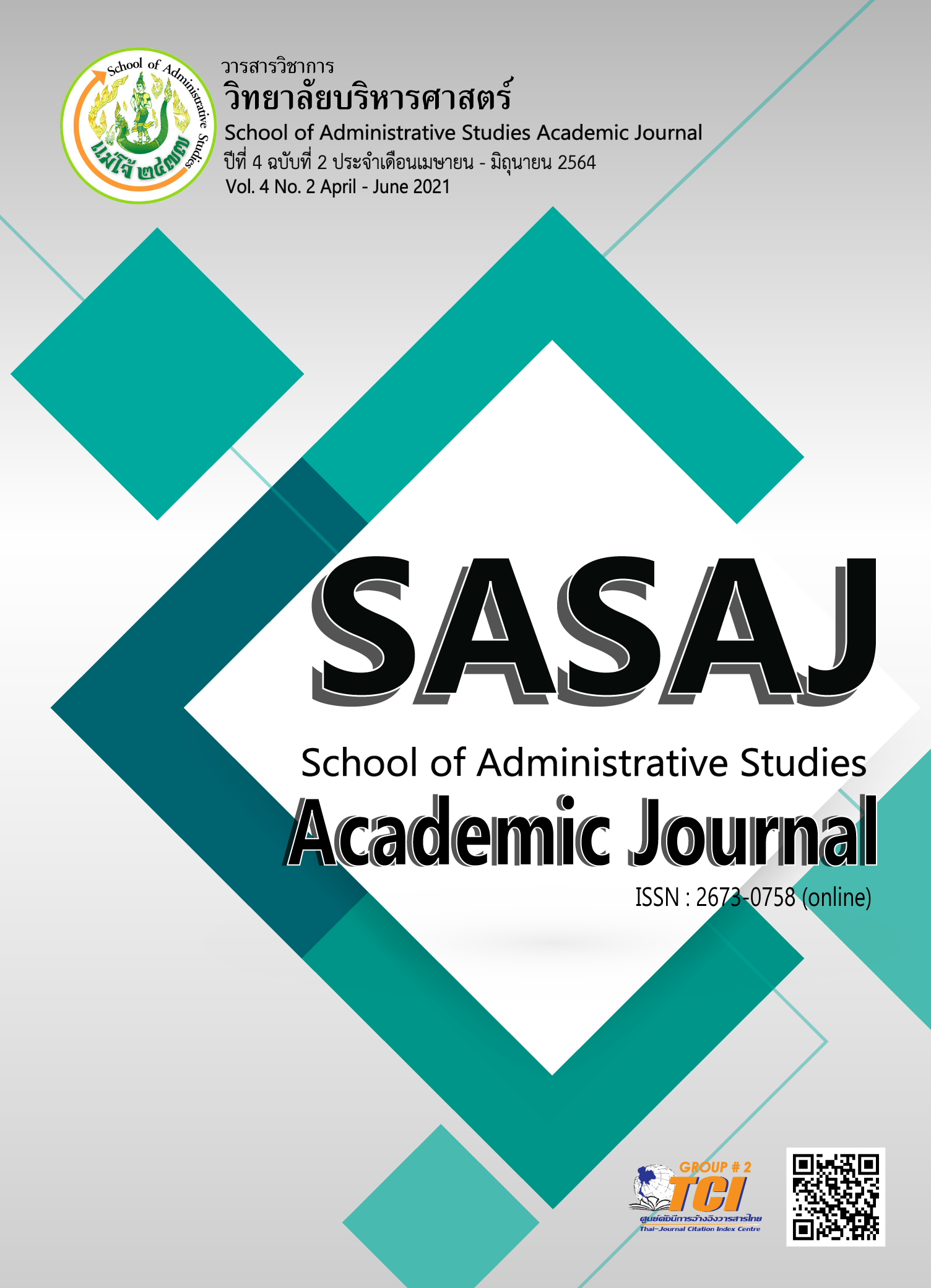หลักสัมมาอาชีวะในพุทธปรัชญาเถรวาท
Main Article Content
บทคัดย่อ
บทความนี้ มีวัตถุประสงค์ 3 ประการ คือ 1) เพื่อศึกษาหลักสัมมาอาชีวะในพระพุทธศาสนาเถรวาท 2) เพื่อศึกษาหลักธรรมที่เกี่ยวข้องกับสัมมาอาชีวะในพระพุทธศาสนาเถรวาท 3) เพื่อวิเคราะห์หลักปฏิบัติสัมมาอาชีวะตามแนวพุทธปรัชญาเถรวาท เป็นงานวิจัยเชิงคุณภาพ เน้นวิเคราะห์จากเอกสาร แล้วนำมาเรียบเรียงบรรยาย
ผลการวิจัยพบว่า 1) หลักสัมมาอาชีวะในพระพุทธศาสนาเถรวาทเป็นกิจกรรมทางเศรษฐกิจของชีวิตและต้องไม่ขัดแย้งกับกฎหมาย หรือเป็นอันตรายต่อเองและคนอื่นๆ ถือเป็นระบบเศรษฐกิจที่เน้นให้ผู้มีส่วนได้ส่วนเสีย มีความรู้สึกเชื่อมโยงเป็นหนึ่งเดียว ภายใต้การปฏิบัติที่อยู่บนพื้นฐานของหลักสิทธิมนุษยชน 2) หลักธรรมที่เกี่ยวข้องกับสัมมาอาชีวะนั้นมีทั้งที่เป็นไปเพื่อสนับสนุนและขัดแย้งในด้านเจตนา ผลลัพธ์และวิธีการ สำหรับหลักธรรมที่สนับสนุนนั้น ได้แก่ ทิฏฐธัมมิกัตถประโยชน์ ปัจจเวกขณ์ 4 สัมมาทิฏฐิ และสังคหวัตถุ 4 ส่วนหลักธรรมที่ขัดแย้งนั้น ได้แก่ มิจฉาวณิชชา 5 อบายมุข 6 และนิวรณ์ 5 และ 3) วิเคราะห์หลักปฏิบัติสัมมาอาชีวะตามแนวพุทธปรัชญาเถรวาทแล้วทราบว่า เป็นแนวคิดในด้านการตอบสนองร่างกาย มีหลักธรรมมาเกี่ยวข้องเพื่อเป็นตัวอย่างของพฤติกรรมเชิงบวกและชี้ให้เห็นพฤติกรรมเชิงลบ และเป็นแนวคิดที่เน้นวิธีการและผลลัพธ์ที่เป็นไปเพื่อสันติสุขเชิงสังคม ซึ่งก่อให้เกิดประโยชน์ในแง่ของการมีอาชีพสุจริตและมีคุณค่าต่อการพัฒนาจิตใจให้มีความสงบเย็น
Article Details
ลิขสิทธิ์
เอกสารอ้างอิง
พระธรรมปิฎก, ป.อ. ปยุตฺโต. (2539). มรณกถา. กรุงเทพฯ: สื่อตะวัน.
พระพรหมคุณาภรณ์, ป.อ. ปยุตฺโต. (2549). สุขภาวะองค์รวมแนวพุทธ : ภาวะที่ปลอดทุกข์และเป็นสุขในระบบชีวิตแห่งธรรมชาติและสังคมยุคไอที. กรุงเทพฯ: ธรรมสภา.
มหาวิทยาลัยมหาจุฬาลงกรณราชวิทยาลัย. (2539). พระไตรปิฎกภาษาไทย. กรุงเทพฯ: โรงพิมพ์มหาจุฬาลงกรณราชวิทยาลัย.
วิระดา แก่นกระโทก. (2555). ศึกษาวิเคราะห์การบรรลุธรรมของกลุ่มบุคคลหลากหลายอาชีพในพระพุทธศาสนาเถรวาท. (วิทยานิพนธ์ปริญญามหาบัณฑิต). มหาวิทยาลัยมหาจุฬา- ลงกรณราชวิทยาลัย. กรุงเทพฯ.
ศักดิ์ชัย อนันต์ตรีชัย. (2551). จริยศาสตร์ในการดำเนินธุรกิจของพระพุทธศาสนาเถรวาท. (ปริญญานิพนธ์ปริญญาดุษฎีบัณฑิต). มหาวิทยาลัยมหาจุฬาลงกรณราชวิทยาลัย. กรุงเทพฯ.
สุเทพ สุวีรางกูร. (2551). ปัญหาสังคม. กรุงเทพฯ: โอเดียนสโตร์.


